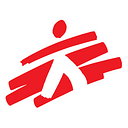Transparency matters: Italy moves against the secrecy surrounding the cost of medicines
Silvia Mancini, MSF Advocacy Officer
How much do medicines cost to develop? The answer to this critical question is that we don’t know. What we do know is that the lack of transparency and secrecy surrounding these costs allows pharmaceutical companies to charge just about any price they want for their drugs. Now Italy has taken a pioneering step in requiring more transparency from the industry.
Currently pharmaceutical corporations are not required to disclose their research and development (R&D) costs, how much public money they receive to help develop medicines, or what prices they charge in different countries.
This means they can — and do — charge sky-high prices and make huge private profits off the back of public investments. The pharmaceutical industry justifies high drug prices by claiming the need to recoup the high costs they invest in R&D. However, they never publicly reveal those figures, preferring to keep us all in the dark about the actual costs involved. Consequently, countries and health systems have to negotiate ‘blind’ with companies while trying to secure an affordable price for medicines to treat their populations.
The last few years have seen escalating drug prices create increasingly global barriers for access to medicines — these price barriers are not limited anymore to people living in developing countries. Cancer drugs, hepatitis C drugs, insulin — sky-high prices for all of the above have created real life and death challenges for people and health systems in rich countries, too. Health systems are buckling under the prices of new medicines everywhere. The public is not getting its money’s worth and pharma has been getting rich at our expense as taxpayers.
Which is why — after some pretty drawn-out and contentious negotiations — there was a cause for celebration at the World Health Assembly back in 2019, when Member States finally adopted a resolution to demand more transparency from pharma over how they price their drugs.
Italy was at the forefront of that initiative in 2019 and today is taking a further important step forward to redress the power imbalance between pharma companies and the public, and require more transparency from an industry that deliberately cloaks itself in secrecy.
August saw the formal approval of a decree from Italy’s regulatory medicines agency (AIFA) that asks pharmaceutical corporations, before any major drugs purchase, to provide the agency with specific information about the company’s R&D costs, as well as the commercial conditions under which the same product is sold in other countries — i.e. the prices the company is charging elsewhere.
The ‘Pricing and Reimbursement’ decree promises to disrupt a system which has allowed for far too long pharmaceutical corporations to impose exorbitant prices on governments for their innovative products, which are more often than not disconnected from actual R&D costs and funded with taxpayers’ money.
Let’s take a closer look at the decree — it requires corporations;
→to demonstrate the ‘added therapeutic value’ of each drug under negotiation — meaning corporations that want to bring a medicine onto the Italian market at higher prices than those of existing treatments, will now have to demonstrate that the new medicine also has increased therapeutic efficacy.
→ to disclose the price at which the drug is sold in other countries — until now, the information about prices in other countries has been ‘protected’ by confidentiality clauses.
→to make public disclosure of the subsidies and public funds received by the corporation towards the R&D costs, as well as disclosure of the overall R&D costs.
→to reveal the status of patents that it holds on the drug.
→and — the icing on the cake — to provide the regulatory authority with annual data on profits and sales of each drug.
“A spectacular ‘win’ for public health”
It’s a spectacular ‘win’ for public health and will undoubtably strengthen the negotiating position of AIFA with pharmaceutical corporations. However, we now need to see the principles on paper turned in to reality.
The task now for AIFA is to define clear means and guidelines for the implementation of the decree. For example, what steps are taken if the corporation does not produce the required documents? Will negotiations be blocked? If this applies for an essential and innovative drug, what consequences could it have on public health? Will AIFA keep its nerve and block negotiations on an essential and innovative drug, given the potential public health consequences of keeping it off the market? And who will verify the reliability of the documents produced by the corporations?
Who will follow in Italy’s footsteps?
There’s a road ahead to travel of course, but the publication of this decree is indeed a pioneering first step. And where Italy has acted, civil society groups elsewhere are now looking on closely, hoping this might encourage other governments to follow suit.
And in a time of COVID-19, there’s no more critical moment to ensure transparency of the costs of drug and vaccine development. Billions of dollars of public investment have already been poured into the race for new vaccines and treatment. We need corporations to come clean on prices and costs, and as well to share clinical data so that fair prices can be set that ensure affordability for everyone — both people in our own projects and others too in need — and that pharma doesn’t use the pandemic as another opportunity to line its pockets. Transparency matters.
Find out more about our work on transparency
